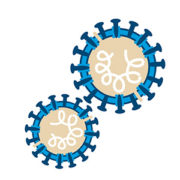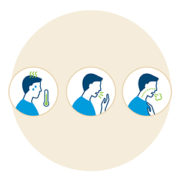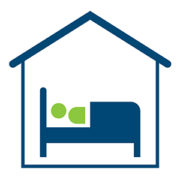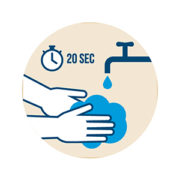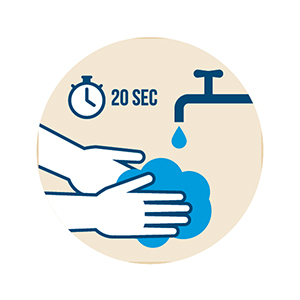COVID-19 Updates & Resources
For the most up-to-date information on COVID-19 please visit the CDC website: https://www.cdc.gov/coronavirus/2019-nCoV/index.html

General questions:
Tel: 610-543-4712
Email: admin@swarthmorepres.org
› The SPC Building is Closed but Our Ministry Continues
The church is not a building; the church is not a steeple;
The church is not a resting place: the church is a people!
lthough for the most part, SPC’s buildings remain closed except by appointment, Session has recently approved guidelines that will allow for carefully managed in-person gatherings when the work to be accomplished cannot be done well virtually. You will begin now to see a sprinkling of carefully planned opportunities to join in Christian Formation, Fellowship, and Worship on a regular basis. Sunday worship and all large gatherings will remain “virtual” for the foreseeable future.
Our ministers and staff members, for the most part, continue to work remotely. Boards and Committees continue to meet online. To arrange entry to the building for essential work, please contact Parish Administrator Dorrie McGrath or Facility Manager John Hoing. Clergy and Staff contact information is available on the church Members’ website.
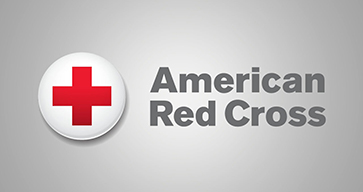

› SPC & Red Cross Partner to Serve Local Patients
In this time of crisis in our nation and around the world, Swarthmore Presbyterian Church was recently able to make possible the collection of 251 pints of blood from the greater Swarthmore community for the American Red Cross.
The opportunity to serve in this way arose through a connection that member, and regular blood donor, Doug Harnsberger had with the Penn-Jersey Services Region of the Red Cross. With the generous donation of space made possible by the Swarthmore Community Center, and Doug’s careful coordination, Red Cross staff and volunteers set up to receive donors on March 23 and 24, and then again on April 1st and 2nd. In a note of gratitude from Red Cross Regional Liaison Jillian Daws, she let us know that approximately 700 local hospital patients will benefit from the generosity of our larger Swarthmore community
Thank you to all who donated, to Doug Harnsberger for his coordination, to Geoff Anderson, Chair of the Community Center Board for working with Doug to make special last-minute arrangements for the space to be available for the emergency blood drive, and to the Swarthmore Community Center and Swarthmore College for their partnership in this effort. The ministry of the church continues, even in this time when we can not gather. Thanks be to God for the gift to be the hands and feet of Christ in this world that God so loves.
The Center for Disease Control (CDC) is closely monitoring COVID-19. We know that our members have growing concerns about the health and well-being of those in our church family and larger community. SPC is taking steps to help prevent the spread of the virus in our community, in order to care for the health and well-being of our members, SPNDS students, and staff. We will post pertinent resources and best practices for the SPC community on this web page.
Click here to read a letter to the congregation from Rev. Joyce Shin on Wednesday March 4, 2020.
Q. What are coronaviruses?
A: Human coronaviruses were first identified in the mid-1960s. They are a respiratory virus named for the crown-like spikes on their surface. We are currently aware of seven different types of human coronaviruses, four of which are associated with mild to moderate upper-respiratory tract illnesses, like the common cold. Other types of the virus include severe acute respiratory syndrome (SARS), the Middle East Respiratory Syndrome, (MERS) and Coronavirus Disease (COVID-19), which is responsible for the latest outbreak. Although COVID-19 is similar to the other types of coronaviruses, it is unique in many ways and we are still learning more each day.
Q. How do you get infected with COVID-19?
A: COVID-19 is spread by close person-to-person contact from droplets from a cough or sneeze, which can get into your mouth, nose, or lungs. Close contact is defined as being within approximately 6 feet of another person. There aren’t many cases in the U.S., so the risk of contracting COVID-19 is low.
Q. How do I know if I have COVID-19?
A: If you were recently exposed to someone with a confirmed case of COVID-19 or have been in a place where an outbreak has occurred within the last two weeks.
The following symptoms could indicate you have contracted COVID-19:
fever; cough; or shortness of breath.
Unless your symptoms are severe, it is recommend you call your healthcare provider first before entering a healthcare facility. When speaking with a healthcare provider in-person or on the phone, be sure to note your symptoms, travel history, or if you were exposed to a person diagnosed with the virus.
Q. How severe is this illness?
A: The World Health Organization says 80% of people with COVID-19 have a mild form of the illness with cold- or flu- like symptoms. The people most likely to get seriously ill from this virus are people over 60 and/or those with pre-existing health conditions. It is estimated that for every 100 cases of COVID-19, between two and four people would die. This is very different from a coronavirus like SARS, where nearly ten in 100 sick people died from the illness.
Q. I see people wearing masks, should I be doing that?
A: Health officials in the U.S. recommend the use of masks to prevent the spread of COVID-19. In Pennsylvania, every time we go out, we need to wear masks.
wear masks to prevent infecting others and to possibly prevent getting ill from close contact in crowded places.
Q. What can I do to prevent getting sick from COVID-19?
A: The following tips will help to prevent COVID-19 as well as other respiratory viruses
- Wash your hands often with soap and water for at least 20 seconds. If soap and water are not available, use an alcohol-based hand sanitizer with at least 60% alcohol.
- Don’t touch your eyes, nose, or mouth, especially with unwashed hands.
- Avoid close contact with people who are showing symptoms of illness.
- Clean and disinfect frequently touched objects and surfaces.
- Cover your cough or sneezes with a tissue or sneeze into your elbow. Throw the tissue in the garbage and make sure to clean your hands afterwards.
- Stay home when you are sick.
Q. What are coronaviruses?
A: Human coronaviruses were first identified in the mid-1960s. They are a respiratory virus named for the crown-like spikes on their surface. We are currently aware of seven different types of human coronaviruses, four of which are associated with mild to moderate upper-respiratory tract illnesses, like the common cold. Other types of the virus include severe acute respiratory syndrome (SARS), the Middle East Respiratory Syndrome, (MERS) and Coronavirus Disease (COVID-19), which is responsible for the latest outbreak. Although COVID-19 is similar to the other types of coronaviruses, it is unique in many ways and we are still learning more each day.
Q. How do you get infected with COVID-19?
A: COVID-19 is spread by close person-to-person contact from droplets from a cough or sneeze, which can get into your mouth, nose, or lungs. Close contact is defined as being within approximately 6 feet of another person. There aren’t many cases in the U.S., so the risk of contracting COVID-19 is low.
Q. How do I know if I have COVID-19?
A: If you were recently exposed to someone with a confirmed case of COVID-19 or have been in a place where an outbreak has occurred within the last two weeks. The following symptoms could indicate you have contracted COVID-19:
fever; cough; or shortness of breath.
Unless your symptoms are severe, it is recommend you call your healthcare provider first before entering a healthcare facility. When speaking with a healthcare provider in-person or on the phone, be sure to note your symptoms, travel history, or if you were exposed to a person diagnosed with the virus.
Q. How severe is this illness?
A: The World Health Organization says 80% of people with COVID-19 have a mild form of the illness with cold- or flu- like symptoms. The people most likely to get seriously ill from this virus are people over 60 and/or those with pre-existing health conditions. It is estimated that for every 100 cases of COVID-19, between two and four people would die. This is very different from a coronavirus like SARS, where nearly ten in 100 sick people died from the illness.
Q. I see people wearing masks, should I be doing that?
A: Health officials in the U.S. do not recommend the use of masks among people not showing symptoms of COVID-19. People in places where spread is more likely, may have been instructed to wear masks to prevent infecting others and to possibly prevent getting ill from close contact in crowded places.
Q. What can I do to prevent getting sick from COVID-19?
A: The following tips will help to prevent COVID-19 as well as other respiratory viruses:
-
- Wash your hands often with soap and water for at least 20 seconds. If soap and water are not available, use an alcohol-based hand sanitizer with at least 60% alcohol.
- Don’t touch your eyes, nose, or mouth, especially with unwashed hands.
- Avoid close contact with people who are showing symptoms of illness.
- Clean and disinfect frequently touched objects and surfaces.
- Cover your cough or sneezes with a tissue or sneeze into your elbow. Throw the tissue in the garbage and make sure to clean your hands afterwards.
- Stay home when you are sick.
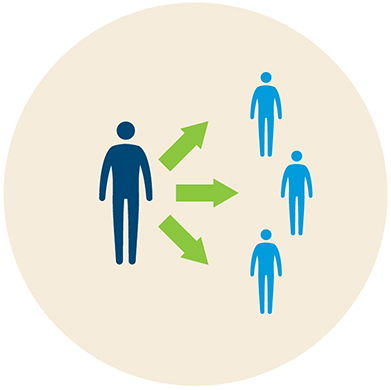
How the Coronavirus Spreads
- Through close personal contact with a sick person.
- Symptoms may show up 2-14 days later

Symptoms of Coronavirus
- Fever
- Cough
- Shortness of breath
Call your healthcare provider if you have symptoms and have been to a country that has experienced an outbreak within the last 2 weeks of your travel OR if you have symptoms and have been in close contact with a person with a confirmed case of COVID-19.

Coronavirus Prevention
- Wash your hands often.
- Cover your cough/sneeze with a tissue.
- Don’t touch your eyes, nose, or mouth.
- Avoid close contact with sick people.
- Clean and disinfect high-touch surfaces often.
- Stay home when you are sick.
Please remember these best practices:
Here are guidelines on when to stay home and some best practices to help you and your loved ones to stay healthy.
- Stay home if you feel ill.
- Wash your hands often with soap and water for at least 20 seconds. If soap and water are not available, use hand sanitizer.
- Avoid touching your eyes, nose, and mouth with unwashed hands.
- Avoid close contact with people who are sick.
- Cover your cough or sneeze with a tissue or sneeze into your elbow. Throw the tissue in the trash, and make sure you clean your hands afterwards.
Links to Useful Information
We will be communicating with you periodically, as things are changing quickly in regard to information about COVID-19.
- Center for Disease Control and Prevention (CDC) website
- Coronavirus Disease 2019 (COVID-19) Situation Summary
- Healthy Habits to Help Prevent Flu
- World Health Organization, Coronavirus
- Association for professionals in infection control and epidemiology website (APIC)
To view or download a helpful flyer on Coronavirus awareness, click here: Coronavirus Fact Sheet
Contact Us! We Would Love to Hear From You
Recent Podcast
Recent Sermons
Contact
727 Harvard Avenue,
Swarthmore, PA 19081
610-543-4712
spcparish@swarthmorepres.org

